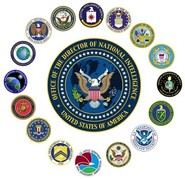|
Reagan’s foreign policy objectives were to reverse the spread of communism and protect Americans. Governments throughout Latin America, Africa, the Persian Gulf, and Asia became leftist, indicating a Soviet expansion of power. |
Superpower influence map from www.sfcir.org.
|
Convinced that Congress was unwilling to support its initiatives, the Reagan Administration decided to act independently and explored ways to circumvent these congressional laws. Officials identified loopholes in the Boland Amendments to militarily support the anti-leftist Contras.
“The [Boland] amendments had prohibited the use of any funds available to the CIA, Department of Defense, or ‘any other agency or entity... involved in intelligence activities.’ This language seemed to leave two openings through which to operate. One was to work through the NSC staff instead of the CIA, on the theory that the staff was not a proscribed intelligence agency or entity. The other was to use ‘private’ or ‘third-country’ funds, on the assumption that only U.S. official funds had been prohibited.”
- Theodore Draper, A Very Thin Line
Reagan obtained congressional approval from broad presidential findings authorizing non-lethal Contra support. However, military support intended to undermine the Sandinista government was also employed.
|
Reagan also felt compelled to free American captives in Beirut because of Carter’s mistakes in the Iranian Hostage Crisis and his compassion for American hostages. Iranian officials had ties to Lebanese terrorists, so U.S. officials decided that clandestine arms sales to Iran would achieve the release of these hostages.
|
Video from Ushadrons on Youtube.
|
|
Header Image: Photo from learnnc.org, "In 1985, President Ronald Reagan meets with Adolfo Calero, a Nicaraguan Democratic Resistance (Contra) leader, and Oliver North." |

